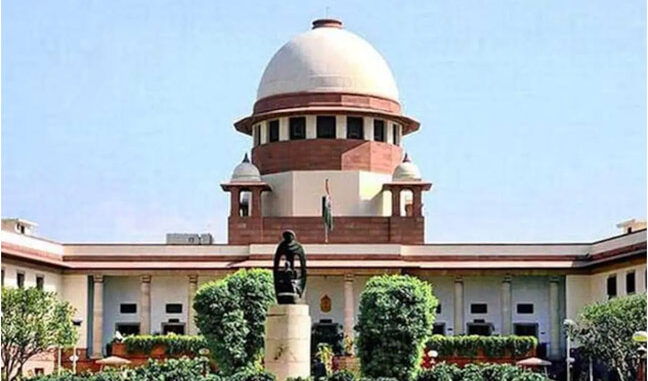
New Delhi (TIP)- The Supreme Court on Thursday, May 19, in a judgment championing the importance of “cooperative federalism” for the well-being of democracy, held that Union and State legislatures have “equal, simultaneous and unique powers” to make laws on Goods and Services Tax (GST) and the recommendations of the GST Council are not binding on them. The apex court’s decision came while confirming a Gujarat High Court ruling that the Centre cannot levy Integrated Goods and Services Tax (IGST) on ocean freight from Indian importers.
“The recommendations of the GST Council are the product of a collaborative dialogue involving the Union and the states. They are recommendatory in nature… The recommendations only have a persuasive value. To regard them as binding would disrupt fiscal federalism when both the Union and the states are conferred equal power to legislate on GST,” a Bench led by Justice D.Y. Chandrachud held.
The court emphasised that Article 246A (which gives the States power to make laws with respect to GST) of the Constitution treat the Union and the States as “equal units”. “It confers a simultaneous power (on Union and States) for enacting laws on GST… Article 279A, in constituting the GST Council, envisions that neither the Centre nor the states are actually dependent on the other,” Justice Chandrachud interpreted.
He said the Centre and the States were “autonomous, independent and even competing units” while making GST laws. “Cooperative federalism is treated like a marble cake federalism due to the integrated approach of the federal units,” he compared. The judgment said that though the Centre may have a larger share of power in certain instances to prevent chaos and provide security, the States still wielded power. “India is a multi-party system. It is possible that the party in power in the Centre may or may not be in power in other States… Even if the States have been given lesser power [in certain situations], they can still resist the mandates of the Union by using different forms of political contestations permitted by the Constitution… It is not imperative that one of the federal units [Centre or the States] must always possess a higher share of power over the other units,” the court stated.
Source: The Hindu





Be the first to comment